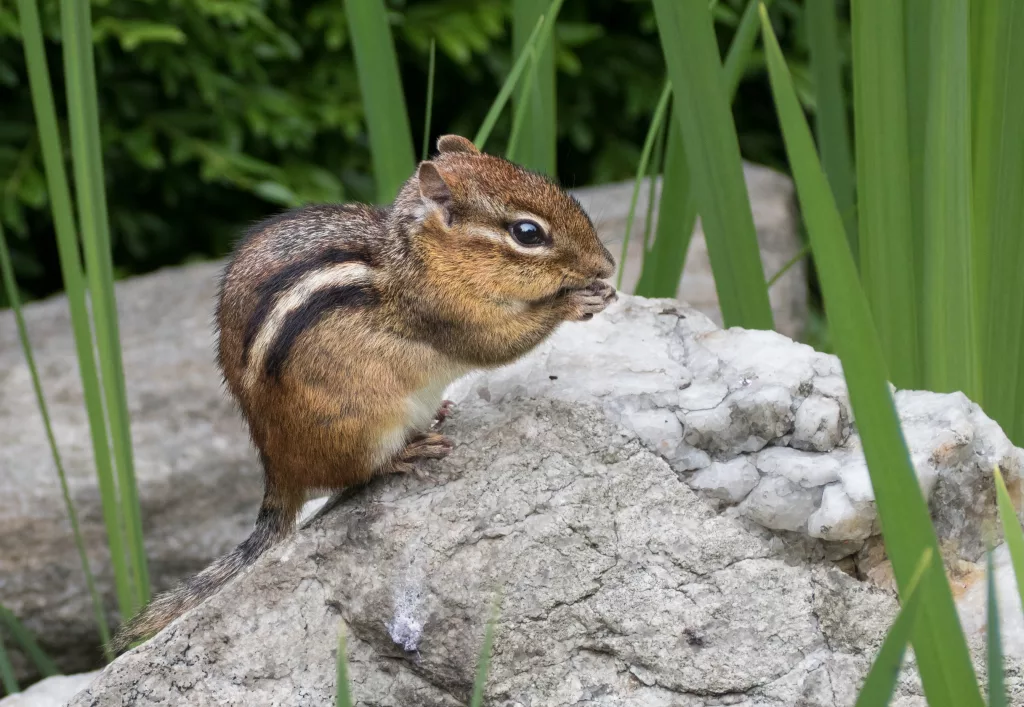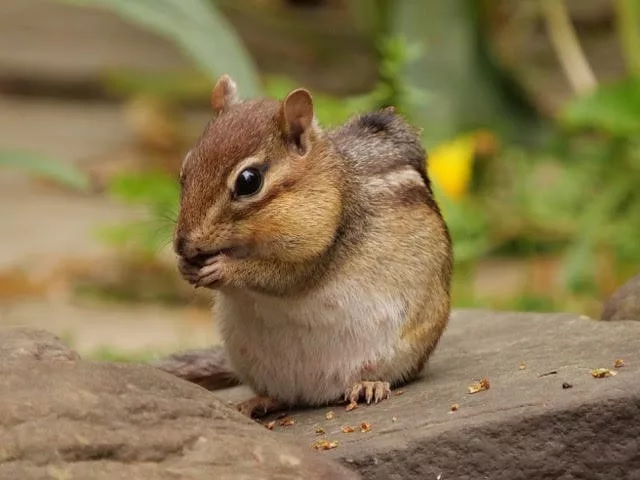It’s easy to get excited to see wildlife around your garden, but when that wildlife is destructive, it’s time to make changes to keep it away. Chipmunks are among the most common animals that can wreak havoc on your garden. While they’re certainly cute, they’re also incredibly destructive and can quickly ruin your yard if not kept in check. To help you keep them away from your garden, we’ve put together this guide on how to keep chipmunks out of your garden.
Keeping chipmunks out of gardens is possible but not too easy. The first step is to identify where they are getting into the garden. This can be done by inspecting the area for holes, caves, and tunnels. If these are found, they should be filled with soil or sealed.
Next, deterrents can be used to deter them from entering the garden. Repellents like mothballs can be spread around the garden’s perimeter. Noise deterrents, such as wind chimes or other sonic devices, can also be used.
If you want to know more about how to keep chipmunks out of your garden, keep reading, we put out a complete guide.
Introduction to Chipmunks
Chipmunks are small rodents that belong to the squirrel family. They can be found in large numbers across North America, especially in yards and gardens. Chipmunks are omnivores, meaning that they eat both plants and animals. They usually feed on seeds, nuts, fruits, insects, and bird eggs.
Chipmunks are usually between 7 and 10 inches long and weigh 2 and 4 ounces. They have short fur with stripes running down their sides and sharp claws and teeth that they use to dig and climb.

What Attracts Chipmunks to Your Garden?
The gardens attract chipmunks because they provide an easy and plentiful food source. Gardens are full of plants that chipmunks love, and they’re also full of insects that chipmunks feed on. Additionally, gardens provide plenty of places to hide and nests to build, making them the perfect home. Chipmunks also love gardens because they provide plenty of places to hide from predators. If your garden has plenty of places for chipmunks to hide, such as logs, rocks, and shrubs, they’ll likely stay in it.
Identification of Chipmunk Infestation
If you suspect chipmunks have made your garden their home, there are several signs to look for. The most apparent symptom is chipmunk droppings, which look like tiny black pellets and can be found near their nests and food sources.
You may also notice signs of digging and burrowing, as chipmunks like to dig tunnels around gardens and underneath plants. Additionally, chipmunks are notorious for eating and stripping plants, so you may notice that your plants look chewed or have had their leaves stripped.
Benefits of Keeping Chipmunks Out of Your Garden
Keeping chipmunks out of your garden is essential for several reasons. First, chipmunks can be destructive and ruin your plants if they’re not kept in check. Additionally, chipmunks can carry diseases and parasites that can be dangerous to humans and pets, so keeping them away from your garden is essential.
Finally, chipmunks can be noisy and can cause a disturbance in your garden. They’re also known to dig up and eat bulbs and roots, damaging your plants.
Strategies for Keeping Chipmunks Out of Your Garden
You can use several strategies to keep chipmunks away from your garden. Here are some of the most effective methods:
Planting Chipmunk Repellent Plants
One of the best ways to keep chipmunks away from your garden is to plant chipmunk-repellent plants. These plants have a strong scent that chipmunks don’t like, and they’ll stay away from your garden if they smell them. Some of the best chipmunk-repellent plants include garlic, peppermint, and chives.
Setting Up Fences
Another way to keep chipmunks out of your garden is to set up a fence around it. Fences can be made of chicken wire, wood, or metal, and they should be at least 3 feet high to keep chipmunks from jumping or climbing over them.
Using Natural Repellents
If you don’t want to set up a fence, use natural repellents to keep chipmunks away. These repellents use strong scents that chipmunks don’t like, such as cinnamon, cayenne pepper, or citrus. You can sprinkle these repellents around your garden or make a spray out of them to deter chipmunks.
Additionally, if chipmunks are already causing damage, humane traps can be used to capture and relocate them. Once they have been removed, it is crucial to fill in any burrows and repair any damage that has been done.
Other Tips
In addition to the strategies above, you can do several other things to keep chipmunks away from your garden. For example, you can reduce the amount of food available to chipmunks by removing fallen fruits and nuts. Additionally, you can reduce the number of hiding spots by keeping your garden clean and trimming back any overgrown shrubs or plants.
Finally, you can make your garden less attractive to chipmunks by filling in any holes or tunnels they’ve dug and by keeping pet food indoors.
Conclusion
Chipmunks can be destructive and can cause a lot of damage to your garden if they’re not kept in check. You can use various strategies to keep them out of your garden, such as planting chipmunk-repellent plants, setting up fences, and using natural repellents.

